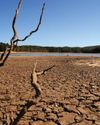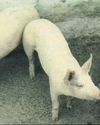There is ‘no silver bullet’ to address South Africa’s plastic conundrum, according to Lorren de Kock, project manager for the circular plastics economy at the Worldwide Fund for Nature – South Africa. However, the fruit industry can start addressing the issue by moving away from packaging that is aesthetically pleasing to recyclable and reusable packaging methods.

Plastic is cheap compared with other materials such as paper, metal and glass. It has many more applications than these materials, and also prolongs shelf life, an advantage that is relevant to the fresh produce industry.
However, there is a dark side to this: plastic packaging is the number one debris found in the environment, and its impact is devastating. Worldwide, about nine million tons of plastic are released into the environment each year. In addition to plastic found in the ocean and being indigested by various marine animals, there are also less obvious impacts. Recent research has found that the chemicals leaching from plastic debris into the oceans disrupt the life cycles of the photosynthetic bacteria that produce oxygen for the planet. If every second breath we take comes from the sea, this is a genuine concern.
However, it is not just the macro-, visible plastics, such as plastic bags, bottles and punnets, that are a problem. Macroplastics break down into tiny pieces called microplastics, which are found in the water we drink and the food we eat, particularly seafood.
WHY IS THERE SO MUCH PLASTIC IN THE ENVIRONMENT?
The production of plastic has seen an exponential increase since the 1980s, and the prediction is that it will increase by 40% within the next decade. The scary fact, moreover, is that 75% of plastic goes to waste.
Bu hikaye Farmer's Weekly dergisinin July 19, 2019 sayısından alınmıştır.
Start your 7-day Magzter GOLD free trial to access thousands of curated premium stories, and 9,000+ magazines and newspapers.
Already a subscriber ? Giriş Yap
Bu hikaye Farmer's Weekly dergisinin July 19, 2019 sayısından alınmıştır.
Start your 7-day Magzter GOLD free trial to access thousands of curated premium stories, and 9,000+ magazines and newspapers.
Already a subscriber? Giriş Yap

Improving efficiencies in feed and grain milling
Bühler, a Swiss-based company that provides solutions and equipment for various industries, including food and animal feed processing, has pledged that by 2025, it will deliver scalable solutions that will reduce energy, waste and water by 50% in the value chains of its customers.

Tips for better olive production
At an SA Olive Association field day in November, industry experts shared ways to improve olive production efficiencies, from soil preparation to harvesting.

More effort needed to protect vulnerable cheetah
On International Cheetah Day, commemorated every year on 4 December, emphasis was placed on the vulnerability of the species.

Global agriculture: news that made the headlines
Farmer protests, droughts and floods dominated international agricultural news throughout 2024. Here, Janine Ryan gives an overview of these challenges.

Something to scratch a head about
This article showed that if you interact with your pigs, your sows will be happy and their piglets will have better growth.

ARC names best dairy producers of the year
The Agricultural Research Council (ARC) recently announced the winners of the 2024 National Master Dairyman Awards at an event hosted by AgriExpo in Stellenbosch, Western Cape.

Lion breeders to give up bone stockpiles?
The Ministry of Forestry, Fisheries and the Environment issued an official notice in mid-November in which it called on lion breeders to voluntarily hand over their lion bone stockpiles to the state as soon as possible.

Thousands of British farmers march on parliament against inheritance tax
Thousands of UK farmers gathered in London, England, on 19 November to demand the government repeal a proposed inheritance tax on agricultural land, which they argued threatened the future of family-run farms (see page 4), Al Jazeera reported.

Feed, hay, and other costs are up, so it's time to get creative
Breeders and riding schools need to explore innovative ways to generate income in order to ensure their survival, says Dr Mac.

How to make polystyrene seedling trays last longer
While thinking about how to prolong the lifespan of polystyrene seedling trays that are exposed to harsh sunlight, Bill Kerr began to wonder if a coat of paint might offer a solution.